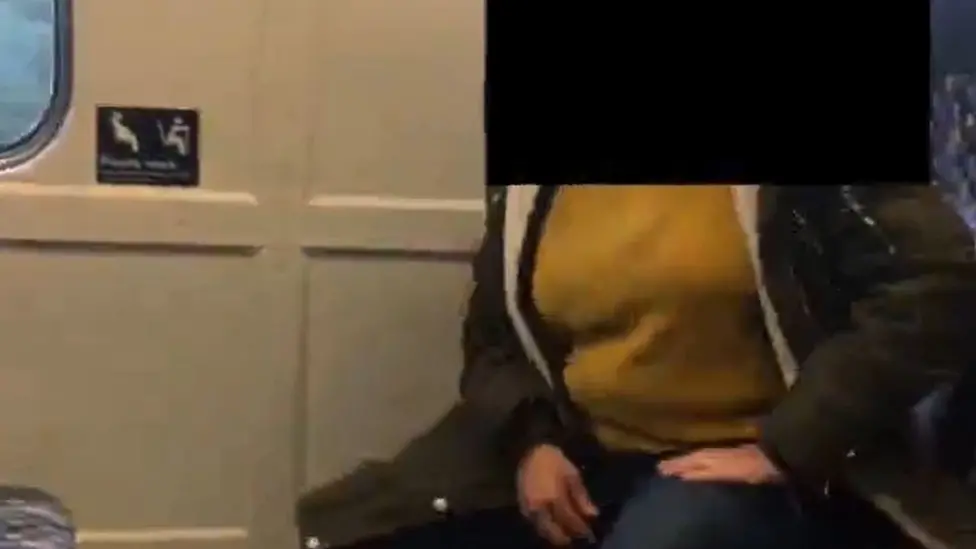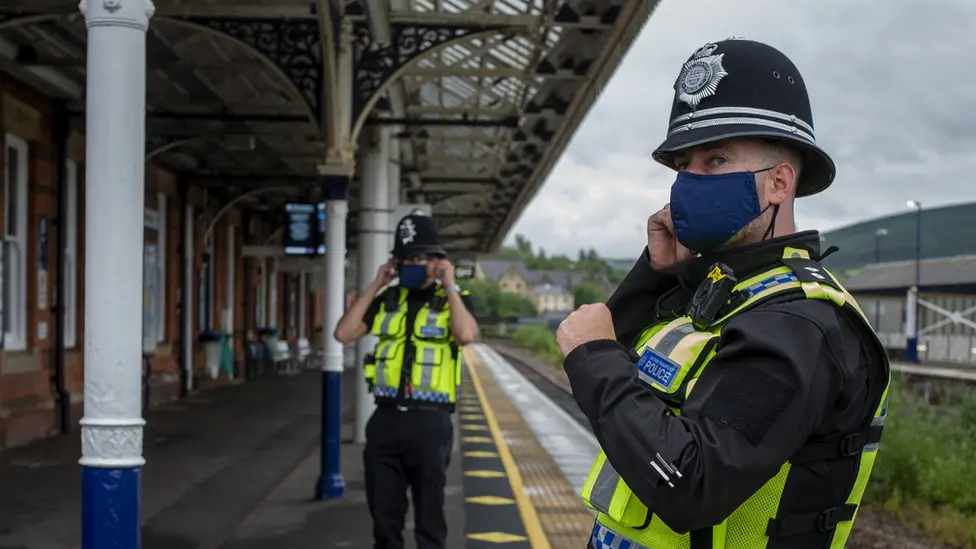Face mask: Lip-reading sisters abused for lifting mask on train
 Sense
SenseA 16-year-old who lifted her face mask so her sister could read her lips was verbally abused by a train passenger.
Saule Pakenaite was on the Liverpool to Southport service with sibling Karolina, 24, who had a guide dog with her.
When Saule briefly removed her covering to speak, a woman began to shout verbal abuse, despite the sisters explaining Karolina was registered as deafblind.
Disability charity Sense called for more awareness of face mask rules.
Mobile footage shows the woman refusing to accept the sisters' explanation that Ms Pakenaite is hard of hearing and visually impaired.
She goes on to question whether she is actually disabled after she is able to respond to her comments.
Saule Pakenaite can be heard explaining that her sister, who has Usher syndrome, is deafblind and says: "There's a spectrum… You don't know what you're talking about."
The exchange continues until another passenger intervenes.
Speaking after the confrontation on 16 July, Karolina Pakenaite said: "I can no longer stay silent about this as I keep experiencing attacks and hearing similar experiences from others too.
"It's taking an effect on my mental health.
"Please respect people individually - ask us, listen, discuss...
"But harassment, name calling or any type of abuse or aggression will never be OK."
 Getty Images
Getty ImagesFace coverings are mandatory on public transport in England but exemptions apply to certain groups.
They include people who provide support to those with disabilities who may rely on lip reading, facial expressions and clear sound for communication.
Exemption cards can be printed from the government's website but those affected are not expected to carry proof.
Sense chief executive Richard Kramer said the sisters' experience "wasn't a one-off - a number of people have been challenged for not wearing a mask".
He said the organisation had received "lots" of similar accounts, which could reinforce any anxiety felt about leaving the home, or lead to further isolation.
"We welcome the government's introduction of 'exemption cards', but more must be done to raise public awareness of who is exempt from wearing face coverings, so the public are on board and disabled people feel supported," he said.
